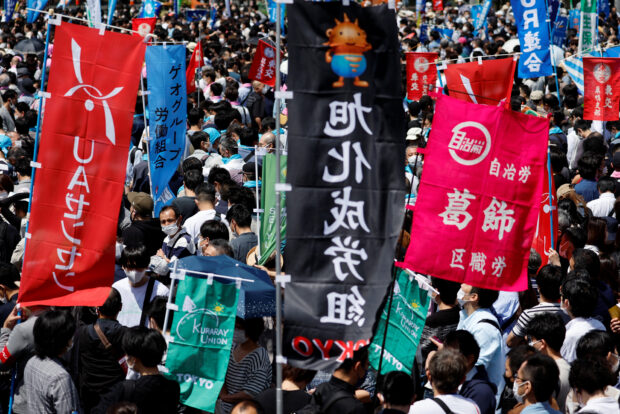The final survey, which included 5,272 unions affiliated with Rengo, showed an average pay hike of 3.58 percent, equivalent to ¥10,560 ($73.04) per month. This is the largest increase since the 3.9 percent hike observed in 1993. The survey also found that SMEs raised wages by 3.23 percent, marking the fastest pace in three decades.
The Bank of Japan (BOJ) is closely monitoring wage growth as it considers when to unwind its ultra-loose monetary stimulus. BOJ Governor Kazuo Ueda has emphasized the need to maintain accommodative policies until wages rise sufficiently to sustainably reach the bank’s 2 percent inflation target.
According to Hisashi Yamada, an economist and professor at Hosei University, rising prices and a shortage of labor are driving up wages, which are expected to continue rising in the coming year. Yamada believes it is crucial to bring real wages into positive territory going forward. The increase in wages will contribute to stabilizing inflation at 2 percent by next year, putting pressure on the central bank to potentially abandon yield curve control.
These pay hikes may provide support for Prime Minister Fumio Kishida, who has prioritized wages in his policy agenda. As the weak yen and higher import prices push up living costs, Kishida aims to address the longstanding issue of virtually stagnant wages in Japan. Currently, Japanese wages significantly lag behind the average for OECD members.
A survey by Keidanren, Japan’s largest business lobby, suggests that big firms’ summer bonus payments are expected to rise by 3.9 percent, marking the second consecutive year of growth. However, the survey cautions that the gains are likely to vary across companies.
By boosting wages, Japanese companies are taking a step towards revitalizing the economy and addressing the persistent issue of low consumer demand. This positive development aligns with the government’s efforts to prioritize wage growth and improve living standards for workers.
Denial of responsibility! SamacharCentrl is an automatic aggregator of Global media. In each content, the hyperlink to the primary source is specified. All trademarks belong to their rightful owners, and all materials to their authors. For any complaint, please reach us at – [email protected]. We will take necessary action within 24 hours.

Omprakash Tiwary is a business writer who delves into the intricacies of the corporate world. With a focus on finance and economic landscape. He offers readers valuable insights into market trends, entrepreneurship, and economic developments.


